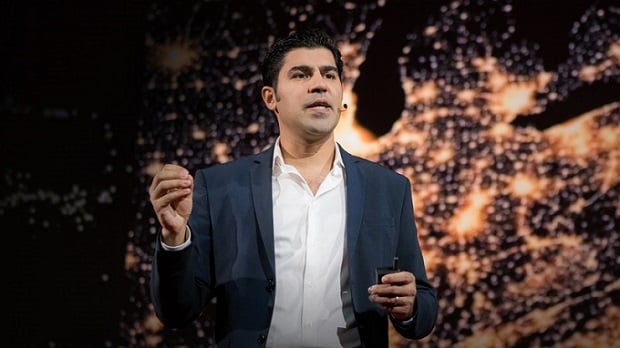

| Online: | |
| Visits: | |
| Stories: |

| Story Views | |
| Now: | |
| Last Hour: | |
| Last 24 Hours: | |
| Total: | |
Parag Khanna’s ‘Blunt’ Defense of Globalization

In a speech at the Foreign Policy Association Khanna argued that globalization is not at risk of reversing despite recent surges in popularity of nationalist ideas.
Author and political scientist Parag Khanna rebuked those who do not believe the world is becoming more interconnected, stating last Thursday that globalization can lessen conflicts and distribute power and trade more equally.
Khanna, promoting his book Connectography: Mapping the Future of Global Civilization in a speech at the Foreign Policy Association in New York, said globalization is not at risk of reversing course despite recent surges in the United States and Europe of trade policies that favor national protection.
“Fortunately, I have the numbers on my side,” Khanna said. “I’m not remotely concerned about it. I’m certainly concerned about the methodologies and the intellects, to be perfectly blunt, of those people who are anti-globalists.”
He argued that a massive increase in infrastructure investments, especially in Asian economies over the last 25 years, is driving a transition to a “supply chain world” governed by trade connectivity. New roads, railways, ports and internet cables have enabled people to become dependent on goods and services provided from far greater distances than ever before.
And because this is happening at the same time across the world, Khanna explained, there is no one cog in the wheel that can stop it.
“The supply chain is a force that’s even more powerful than states themselves, as states seek to be part of those supply chains,” he said. “I’ve found that whenever a country tries to stop the flow of something, it just flows around them.”
For example, the conclusion by most United States leaders to abort the Tran-Pacific Partnership, a free trade agreement with Asian countries brokered to contain China’s influence, will not halt regional trade. In fact, 12 countries that formed TPP met in Chile in March, and were joined by China, to discuss future trade cooperation.
“So a trade agreement that we had conjured up to help isolate China winds up going on without us, and with China,” Khanna said.
Anchor powers
Shifting to a supply chain world is part of what Khanna sees as a “systems change.”
Since the end of the Cold War, the world has operated under a US-led unipolar system based on a hierarchical power structure. That is now transitioning to one where power is distributed among “anchor” countries.
China is the fastest growing anchor power right now, Khanna said, driven first by opening its markets in the 1970s, and now with its focus on infrastructure development.
A McKinsey Global Institute study reported in 2016 that China is spending more of its gross domestic product on infrastructure, 8.6%, than the US and Western Europe combined.
Khanna said this is increasing China’s influence near and far.
Not only is it building roads, bridges and ports at home, it’s financing projects for its neighbors as part of its “One Belt, One Road” Asia development strategy. Even if some of China’s neighbors are concerned about its growing influence, they “need that Chinese investment,” Khanna said.
“Most of the countries are not able to find on the global market some willing substitute for their economic and infrastructural requirements,” he explained.
Even more, China’s dedication to an infrastructure build out is increasing its connectivity with Europe. Khanna described the unification of the Eurasian “mega-continent” the biggest trend to watch in geopolitics over the next 25 years.
China has created the Asian Infrastructure Investment Bank, a $100 billion development finance institution, to act as a driver for its regional strategy.
Acknowledging the economic opportunity, 14 European Union members have joined the AIIB. According to Khanna, EU trade with the US is about $1 trillion annually, similar to its trade with China, Australia, India, South Korea, Japan and other Southeast Asian countries combined. However, he said the trade value with the US will be “stuck where it is” by 2025 or 2030, but EU trade with Asia is expected to increase dramatically.
Khana concludes that the emergence of regional powers in which “connectivity is the governing force” can be a good situation for all parties involved.
“In the long run, I have a cautiously optimistic view because of the fact that even if we build these infrastructures and connectivity for selfish reasons,” he said. “They wind up creating a much more connected and distributed system where supply can meet demand and where there is less reason for conflict.”
The post Parag Khanna’s ‘Blunt’ Defense of Globalization appeared first on Foreign Policy Blogs.
Source: http://foreignpolicyblogs.com/2017/04/09/parag-khannas-blunt-defense-of-globalization/


